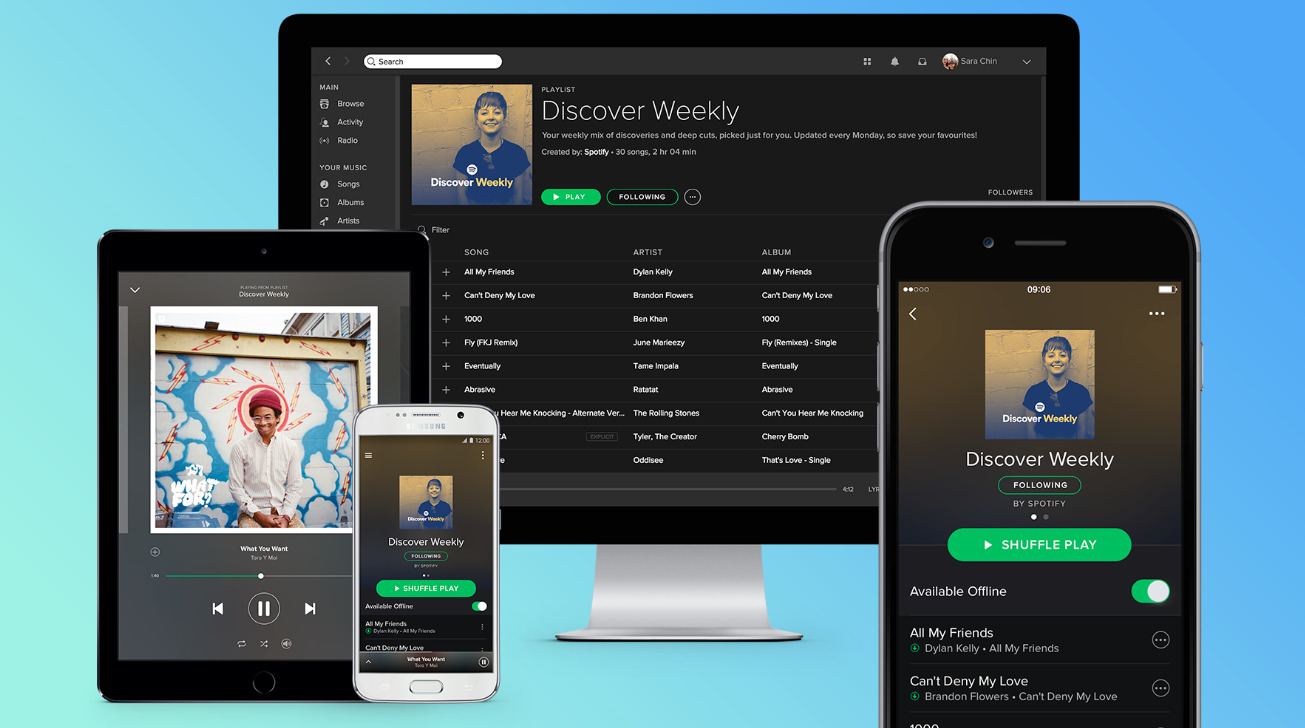Apple Music rival Spotify's efforts to push for podcasts is paying off, reporting in its Q4 financial results a 200% year-on-year rise in the listening of the shows, with the streaming music service still retaining the top spot globally with more than 124 million paying subscribers.
Revealed as part of its quarterly financial results disclosure, Spotify has seen considerable revenue growth over the same period last year, bringing in 1.86 billion euros ($2.04 billion) in the fourth quarter alone. This represents an increase of 24% year-on-year.
The bulk of its revenue stems from paid users, which now accounts for 1.64 billion euros ($1.76 billion) of its overall income, again up 24% on last year. This rise is also due to the increase in premium subscribers, which has reached 124 million, a 29% year-on-year increase, while total monthly active users including free tier users is up 31% at 271 million for the quarter.
In theory, this keeps Spotify at the top of the music streaming service rankings, ahead of Apple Music. The last time Apple Music subscriber figures were revealed was in June 2019, when SVP of Services Eddy Cue advised it had passed the 60 million paid subscriber mark.
Despite the higher revenue, Spotify has endured an operating loss of 77 million euros ($84.8 million). Spotify attributes this to "higher than expected social charges," defined as "payroll taxes associated with stock based compensation."
The main talking point for the company is its growth in podcast listening, in that consumption hours for the quarter were double what it was in the same quarter last year. More than 16% of total monthly active users engage with podcast content, with more than 700,000 podcast titles available for listening on the platform.
Spotify has a "growing body of evidence" showing there are benefits to its podcasting efforts and the increased listening of them by users. Retention is up "on the order of several hundred basis points," and early data suggests the regular podcast listeners are "more likely to convert to Premium over time."
One way it is expanding its podcast roster is in a deal to buy sports and entertainment media company The Ringer. The deal, according to Variety, will add more than 30 podcasts to the service, among other content initiatives.
For the next quarter, Spotify aims to achieve between 279 and 289 million monthly active users, between 126 and 131 million premium subscribers, and total revenue of between 1.71 billion euro and 1.91 billion euro ($1.88 billion and $2.1 billion). By the end of the year, it foresees premium subscribers could reach 143 million to 153 million people, with total monthly active users somewhere between 328 million and 348 million.
 Malcolm Owen
Malcolm Owen







-m.jpg)






 Marko Zivkovic
Marko Zivkovic
 Christine McKee
Christine McKee
 Andrew Orr
Andrew Orr
 Andrew O'Hara
Andrew O'Hara
 William Gallagher
William Gallagher

 Mike Wuerthele
Mike Wuerthele
 Bon Adamson
Bon Adamson




-m.jpg)



8 Comments
Yep. That's absolutely the last item of proof that Apple is in fact being anti-competitive by abusing the advantages they have of their platform and thereby completely decimating Spotify's business. :eyeroll:
It would be great if Apple could invest more in podcasts. They've been a great champion of podcasting since the very beginning making it part of iTunes. But they should go further and start buying up some shows or even networks, like iHeartRadio.
Big advantage of podcasts integration in Spotify is that they’re considered „music“ for mobile data providers (at least Vodafone) in my country (they don’t seem to care about any net neutrality at all). So, on LTE, it is actually cheaper to listen podcasts through Spotify, than Podcast app. Another big advantage of Spotify here in Czechia, is that it works with Amazon Echo devices. Apple Music refuses to connect stating that „it is not supported in your area“. But I pay the same as people in Vienna, less than 100 miles away, where it works flawlessly. Maybe these are some of the reasons why Spotify is more successful here in Europe. Anyway, I still use Apple Music, as it's the only service featuring decent Apple Watch app, which matters most for me.
As Apple’s portfolio of services improves, Apple can introduce subscription bundles that would make it very difficult for spotify to compete.
I have Spotify premium and use it daily but I have never listened to a podcast on the app. I always use the native podcast app and I’m sure others do as well. So I’m really confused how something that is free (podcasts) are driving Spotify subscription growth?